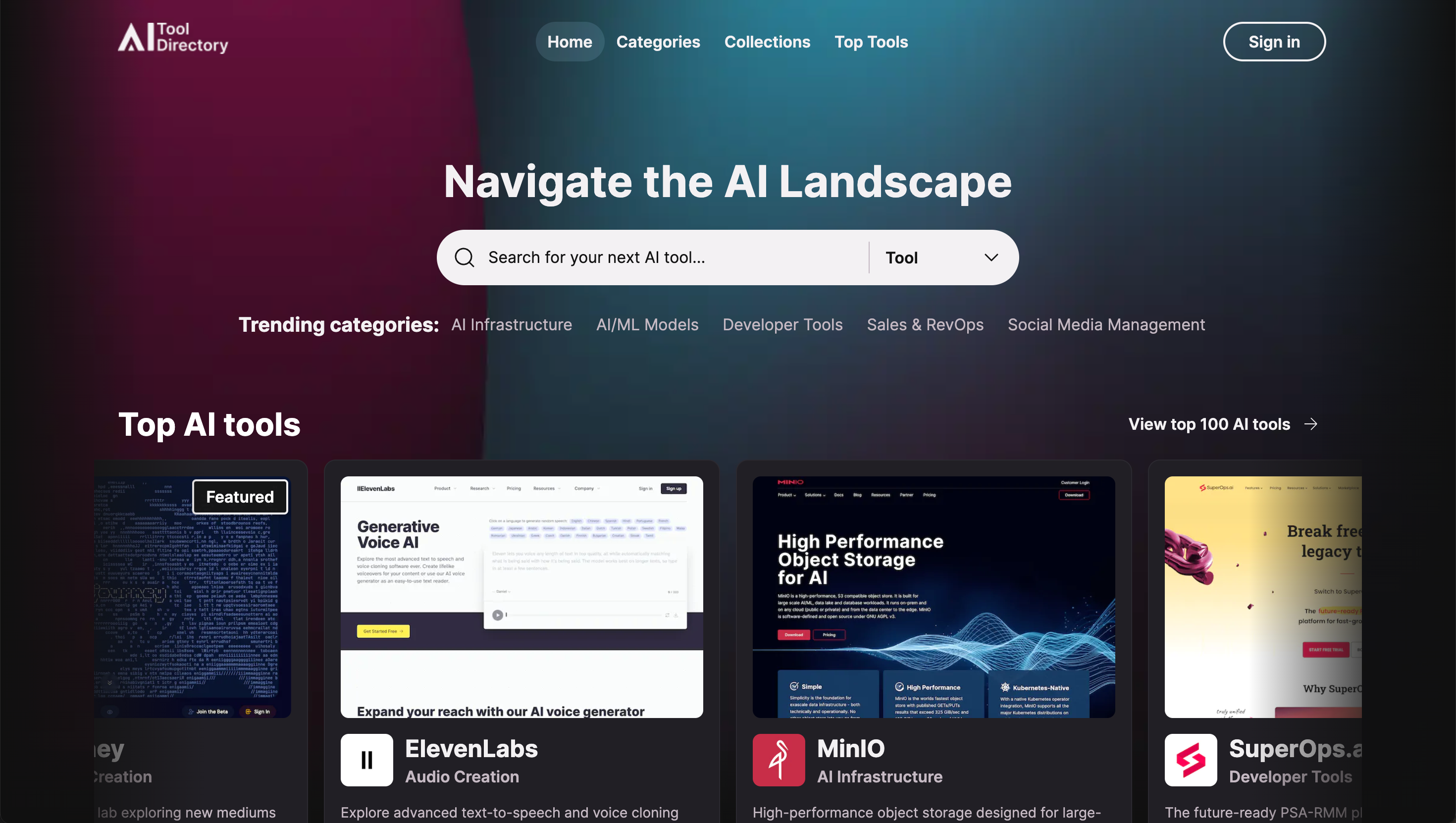In today's rapidly evolving digital landscape, creativity is being redefined by the emergence of advanced artificial intelligence tools. These remarkable innovations are not just enhancing the way we think but are fundamentally altering the process of idea generation and execution. From artists to engineers, professionals across various fields are tapping into AI to push the boundaries of what is possible, transforming traditional methodologies into dynamic and efficient workflows.
As we explore this new frontier, a comprehensive AI tool directory becomes an invaluable resource for individuals and organizations seeking to integrate these technologies into their creative processes. With a plethora of AI applications available, understanding which tools best suit specific needs can empower innovators to harness the full potential of artificial intelligence in driving productivity and creativity. This synergy between human ingenuity and machine capability is paving the way for unprecedented advancements and shaping the future of innovation in ways we are only beginning to comprehend.
Overview of AI Tools
AI tools are increasingly transforming various sectors by enhancing creativity and improving efficiency. These tools leverage advanced algorithms to analyze data, generate insights, and automate tasks, allowing individuals and organizations to focus on higher-level creative endeavors. From content generation to design assistance, AI tools are becoming integral in facilitating new ideas and solutions.
The versatility of AI tools stems from their ability to adapt to different needs and applications. For instance, writing assistants help authors and marketers refine their content, while design tools enable artists and designers to explore innovative visual concepts effortlessly. In industries like healthcare, AI tools are revolutionizing diagnostics and personalized treatment plans, enhancing the creative approach to problem-solving within complex fields.

As these technologies mature, the development of comprehensive AI tool directories is becoming essential. These directories serve as valuable resources, helping users navigate the vast landscape of AI applications and find the right tools for their specific projects. By curating information about the capabilities, features, and user experiences of various AI tools, these directories empower individuals and organizations to tap into the full potential of artificial intelligence for innovation.
Key Benefits of AI in Innovation
AI tools are revolutionizing the innovation landscape by enhancing creativity and streamlining processes. These tools provide valuable insights through data analysis, allowing creators to identify trends and uncover opportunities for new products and services. By leveraging Ai tool directory , organizations can transform raw data into actionable strategies that fuel innovative thinking and enable teams to focus on high-level ideation.
Another key benefit of AI in innovation is the ability to automate repetitive tasks. This automation frees up time for innovators to concentrate on creative problem-solving and strategic planning. With AI handling mundane processes, teams can enhance productivity and drive more substantial innovations. This shift not only accelerates the development cycle but also fosters an environment where creativity can flourish undistracted by logistical challenges.
Furthermore, AI tools facilitate collaboration across diverse teams, breaking down silos that often hamper innovation. These tools enable seamless communication and shared access to information, allowing teams from different backgrounds to contribute their unique perspectives. This collaborative approach encourages an exchange of ideas that can lead to groundbreaking solutions, making AI an essential ally in the quest for transformative innovation.
Future Trends in AI Development
As AI technology continues to evolve, one key trend is the increasing integration of AI tools into various sectors, enhancing productivity and innovation. Businesses are leveraging these tools not only to automate routine tasks but also to gain insights that drive strategic decision-making. The rise of AI tool directories offers users a curated selection of the best applications catering to their specific needs, making it easier for individuals and organizations to adopt and implement AI solutions effectively.
Another significant trend is the democratization of AI, where advanced tools become accessible to a broader audience, including small businesses and individual creators. With user-friendly interfaces and reduced costs, these AI tools enable anyone with innovative ideas to bring their projects to life without requiring extensive technical expertise. This shift is expected to stimulate a surge in creativity and innovation across diverse fields, from art and music to software development and marketing.
Lastly, the focus on ethical AI and responsible development is gaining traction. As AI tools become more prevalent, the demand for transparency, fairness, and accountability in their use is increasing. Developers and organizations are prioritizing the creation of AI technologies that are not only advanced but also respect user privacy and societal values. This trend will likely shape the future of AI development, ensuring that innovation is aligned with ethical standards and beneficial to all.
